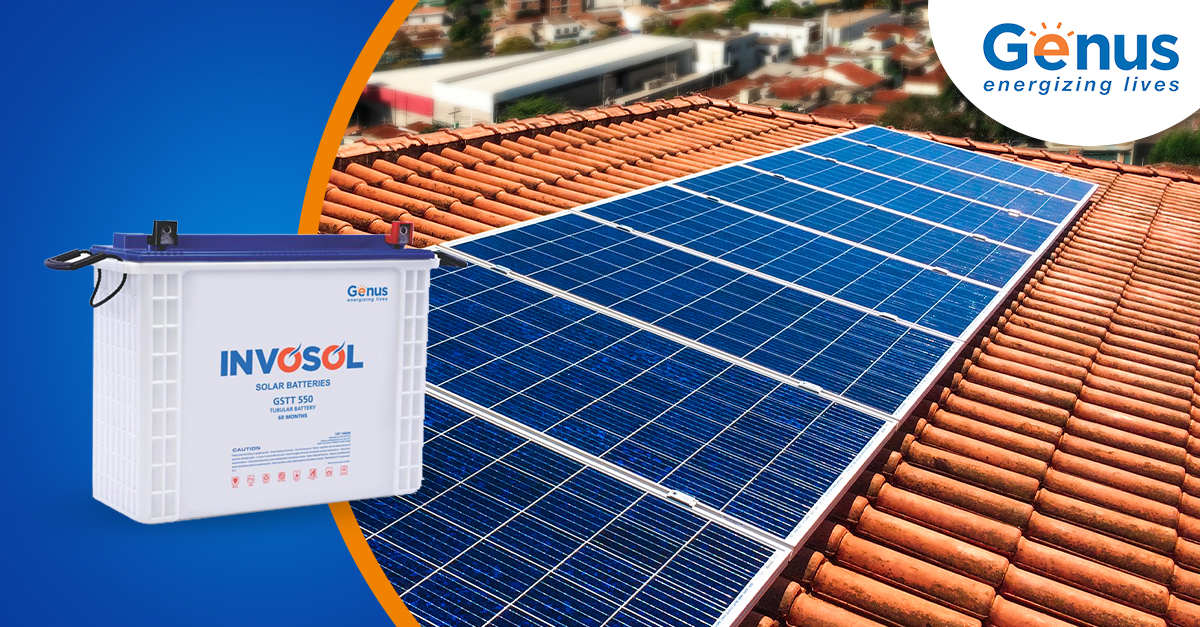As reported by the Solar Energy Industries Association, the demand for solar batteries has skyrocketed over the past few decades, driven by both homeowners and businesses seeking reliable energy solutions. This surge in interest is primarily due to the inconsistent power supply in many regions and the growing awareness of the environmental harm caused by traditional energy generation methods.
If you're considering harnessing solar energy to its fullest potential, having the right battery is essential. You've landed on the perfect guide to help you make an informed decision. With this comprehensive solar battery buying guide, you'll ensure that you’re maximizing your investment.

## What is a Solar Battery?
A **solar battery** is a device that stores energy generated by a connected solar system for use during periods when sunlight isn't available, such as at night, during power outages, or when energy demands peak.
## Key Considerations When Choosing a Solar Battery
### Battery Capacity and Power
The capacity of a solar battery refers to the total amount of electricity it can store, typically measured in kilowatt-hours (kWh) or ampere-hours (Ah). It's important to select a battery that is stackable, meaning you can add multiple units to increase storage capacity as needed.
Additionally, pay attention to the power rating, measured in kilowatts (kW), which indicates how much electricity the battery can deliver at any given moment. A battery with a high power rating but lower capacity might allow you to run your entire household for a few hours, whereas a lower power rating combined with higher capacity could sustain a few key appliances over longer periods.
### Depth of Discharge (DoD)
The depth of discharge is a critical metric indicating how much of the battery's stored energy can be utilized before recharging. Manufacturers usually specify a DoD to ensure the battery retains some charge for optimal performance. For example, a 10 kWh battery with a 90% DoD means you can use up to 9 kWh before needing to recharge. Aim for a battery with a higher DoD to maximize your usage.
### Round-Trip Efficiency
This measures the ratio of usable energy delivered by the battery compared to the energy input required to charge it. For instance, if you store 5 kWh and retrieve 4 kWh, the round-trip efficiency is 80%. Higher efficiency translates into greater cost savings over time, so prioritize batteries offering better efficiency.
### Battery Lifespan and Warranty
When investing in a solar battery, it’s crucial to consider the warranty, which is often expressed in terms of either the number of charge-discharge cycles or the expected lifespan in years. Different brands offer varying warranties, so research thoroughly to find a battery that aligns with your long-term goals.
### Types of Solar Batteries
There are several types of solar batteries available, each with distinct advantages and disadvantages. Here’s a breakdown of the most popular options:
#### 1. Flow Batteries
Flow batteries rely on a liquid electrolyte—commonly vanadium ions or zinc bromide—and chemical reactions to store and release energy. These batteries do not degrade over time and are environmentally friendly, making them ideal for sustainability-conscious users. However, due to their novelty, they tend to be pricier and require more maintenance.
#### 2. Lead-Acid Batteries
These traditional batteries are budget-friendly and widely available. While they are dependable, they tend to have slower charging cycles and are bulkier than other options, limiting their practicality for certain applications.
#### 3. Lithium-Ion Batteries
Lithium-ion batteries dominate the market thanks to their longevity, resistance to damage, and ability to operate across diverse temperature ranges. Although recycling challenges exist, these batteries remain a top choice for many consumers.
#### 4. Tubular Batteries
Tubular batteries represent a specialized form of lead-acid technology commonly used in areas with frequent power interruptions, especially in India. Known for their robustness and efficient charge-discharge cycles, tubular batteries are particularly suited for rural and semi-urban settings.
## Conclusion
Investing in a solar battery is a forward-thinking move that promises enduring benefits. By applying the selection criteria outlined above, you can identify a battery tailored to meet your specific energy needs while staying within budget. If you’re looking for high-performance yet affordable options, consider products from reputable manufacturers like Genus, which consistently deliver reliability and value.
By carefully evaluating these factors, you’ll be well-equipped to choose a solar battery that meets your expectations and ensures sustainable energy independence for years to come.
wheel rims,forged rims,forged wheel rims,Forged Wheels
Guangzhou YS Auto Parts Co.,LTD , http://www.ysapcn.com